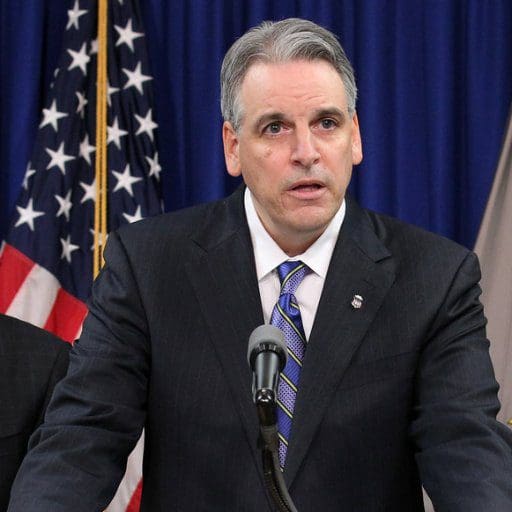Search Posts
Recent Posts
- Stages of Freedom event recognizes Owen Hwang for his thesis on Black student walkout at Brown U. May 9, 2025
- Rhode Island Weather for May 9, 2025 – Jack Donnelly May 9, 2025
- Outdoors in RI: For mom, Fish Parade, Beaches, Quahog Week, Mosquitos, URI student Sailors May 9, 2025
- Habemus papam: Americanus est! Pope Leo XIV, 267th Supreme Pontiff of 1.4 billion Catholics May 9, 2025
- The Real Housewives of Rhode Island coming to Ocean State May 8, 2025
Categories
Subscribe!
Thanks for subscribing! Please check your email for further instructions.

RI AG Neronha: On police accountability, criminal justice reform, and building community trust
While testifying in support of critical civil rights legislation Attorney General Neronha will also unveil an updated and significantly expanded protocol for review of law enforcement use of force. The legislation and protocol mark the first in a series of measures to be announced by the Attorney General in the coming weeks to improve police accountability, engage in meaningful criminal justice reform, and build community trust.
Attorney General Peter F. Neronha announced today renewed efforts to pass important civil rights legislation before the Rhode Island General Assembly. The legislation, introduced on the Attorney General’s behalf in February, would broaden civil rights protections for all Rhode Islanders and give the Attorney General enhanced tools and authorities to investigate and enforce both individual instances of police misconduct as well as patterns or practices of misconduct.
“Improving Rhode Island’s civil rights protections was paramount when this bill was proposed at the beginning of the legislative session and, as our nation’s collective consciousness continues to struggle with the systemic racial injustices prevalent in our society, is even more critical now,” said Attorney General Neronha. “We need these tools to protect the civil rights of all Rhode Islanders and hold individuals and organizations, including law enforcement agencies, accountable when we identify a pattern of conduct that violates civil rights.
“This is no new concept – the United States Department of Justice has had this authority for decades, as have Attorneys General in other states. It is time my Office had it as well,” Attorney General Neronha continued. “I applaud the Senate for giving this legislation a hearing, and I am urging the House to do the same. While this legislation is an important step forward, we have a lot of work still to do to ensure justice for all, and that work remains a priority.”
Most significantly, the civil rights bill gives the Attorney General the authority to conduct pattern-or-practice investigations, allowing the Office to bring an action when an entity, including a police department or other law enforcement agency, engages in repeated federal or state constitutional or civil rights violations. The legislation would authorize the Attorney General to seek specific corrective action and damages for such misconduct. In addition, the bill creates a process that allows the Office to issue a pre-litigation civil investigative demand (CID) to aid in enforcement.
Additionally, the bill codifies that the Attorney General can bring an action when threats, physical force, violence, trespass, or property damage or destruction is targeted at a person based on the person’s actual or perceived race, religion, ancestry, national origin, color, sexual orientation, gender, gender identity or expression, or disability. It also authorizes a civil action when a person is harassed because of a protected status.
Expanded Attorney General Protocol for Review of Use of Force by Police
Attorney General Neronha also intends in the coming days to issue an updated and significantly expanded protocol that mandates Attorney General review of police use of deadly force, use of force resulting in serious bodily injury, and excessive use of force. The new protocol requires all Rhode Island law enforcement agencies to immediately report these incidents to the Attorney General, who will then lead an independent review of the incident and make charging decisions where appropriate. This is the first time the protocol has been amended since 2007.
The new protocol will be issued later this week.
Next Steps
The Office will continue to build on its criminal justice reform initiatives already underway, including: a greatly expanded office diversion program which, through the recently created diversion court, has vastly expanded the diversion of first time/low-level offenders out of the criminal justice system; the Office’s expungement open houses, which have already helped over 400 Rhode Islanders determine their eligibility under Rhode Island Law for expungement of their criminal records and begin the filing process; and legislation to reclassify possession of small quantities of controlled substances for personal use from felonies to misdemeanors, lifting barriers to successful reentry.
In addition, the Office expects to announce a number of proposals in the coming weeks to address the public’s demand for greater accountability, fairness and transparency in policing and the criminal justice system. These proposals will address improved training for prosecutors and police, as well as more accessible and consistent reporting of police use of force and excessive force complaints, among other things.
The Office has also committed to working with the Interlocal Trust and state and local law enforcement to review existing use of force policies to ensure they conform to best practices.
“There are many reforms that could and should be taken as part of a collective response,” said Attorney General Neronha. “I am grateful to the community voices that have provided feedback and helped inform these initiatives and the ones to come. We have a lot of hard work ahead of us to get to a better place. I want Rhode Islanders to know that I am here to listen, and to do more.”
Editor’s Note: The RI ACLU raised concerns about the broad powers the bill would give, perhaps out of the realm of criminal matters, and at least one committee member echoed that. No action could continue without the opportunity for a public hearing.
